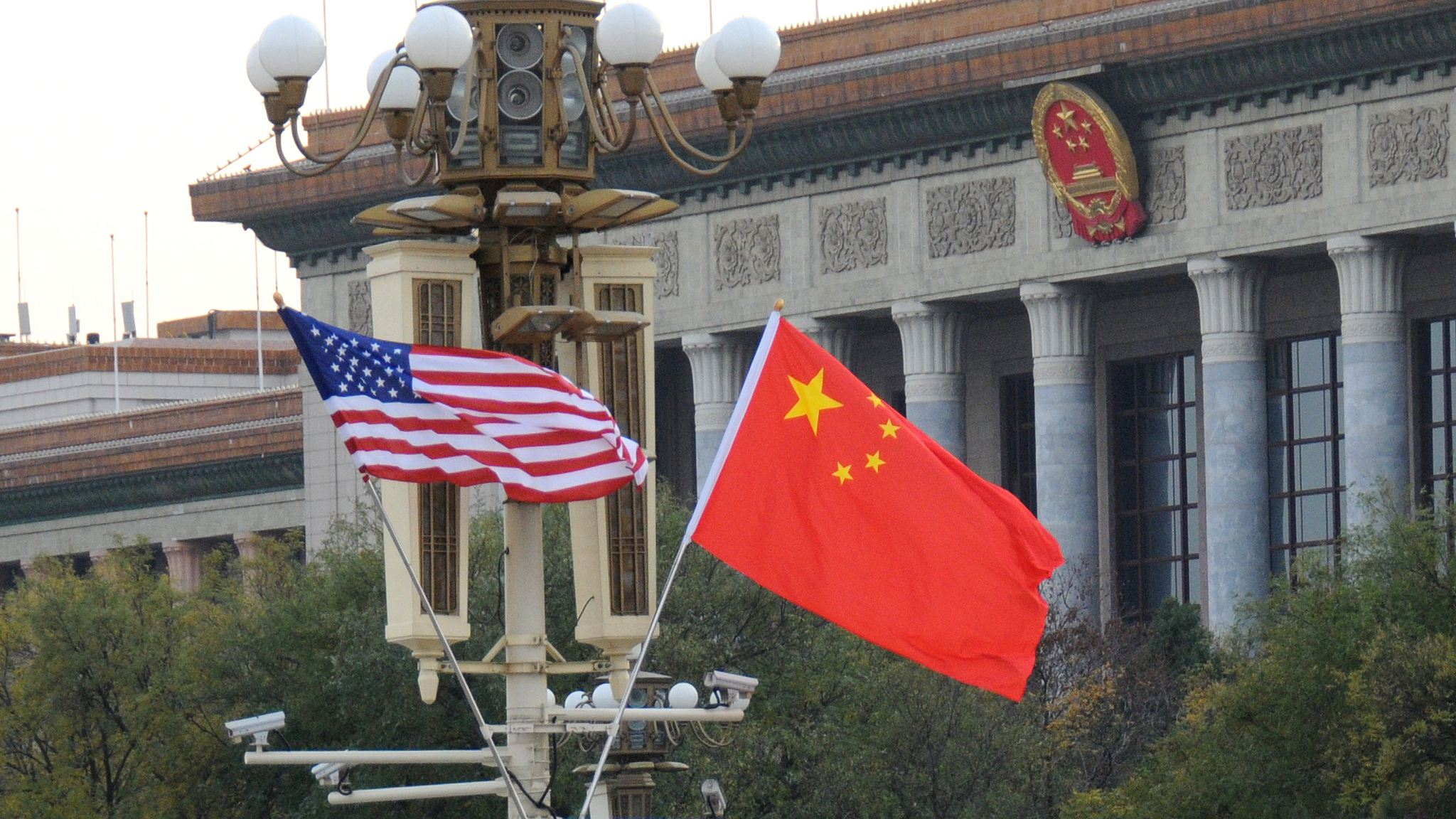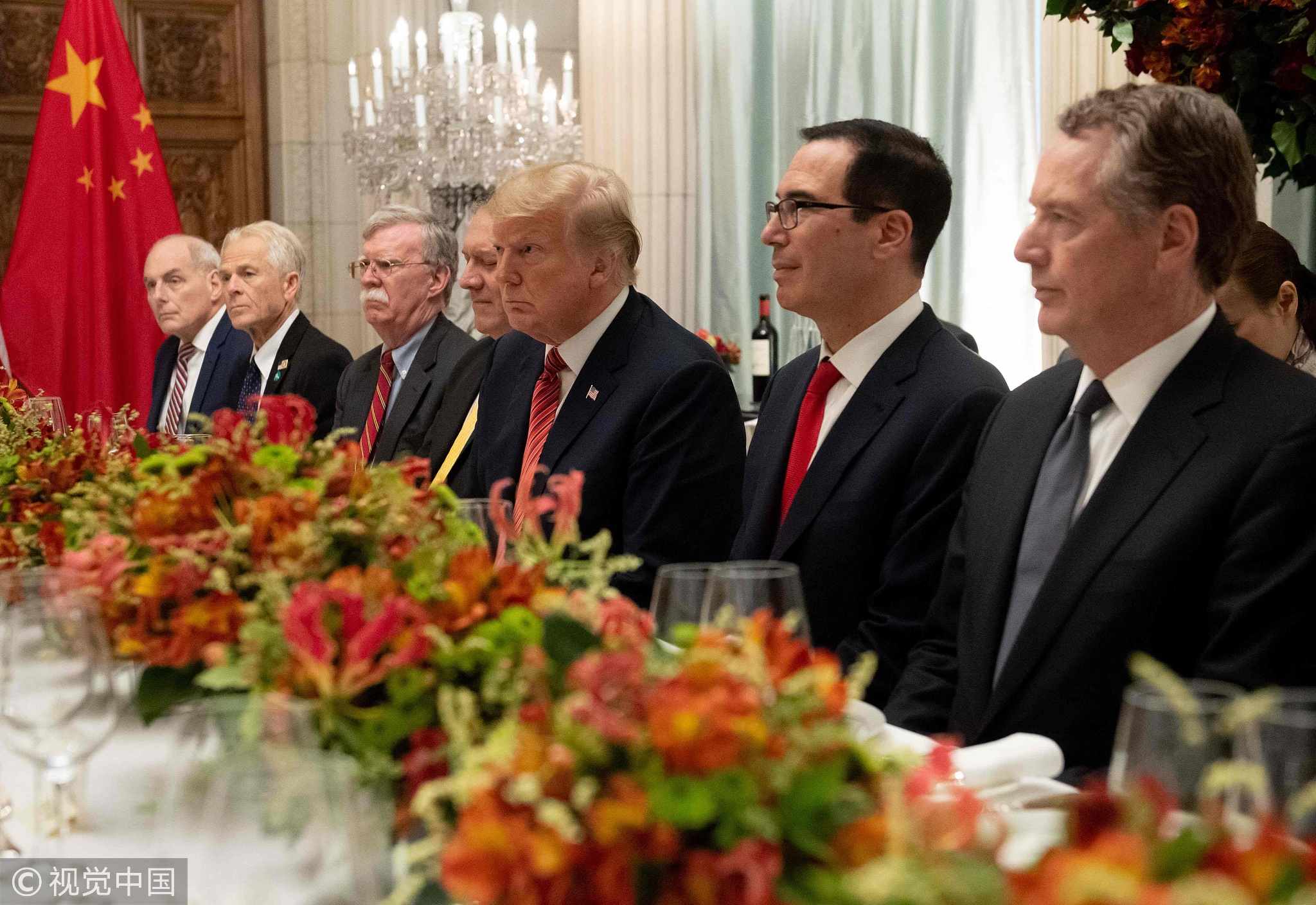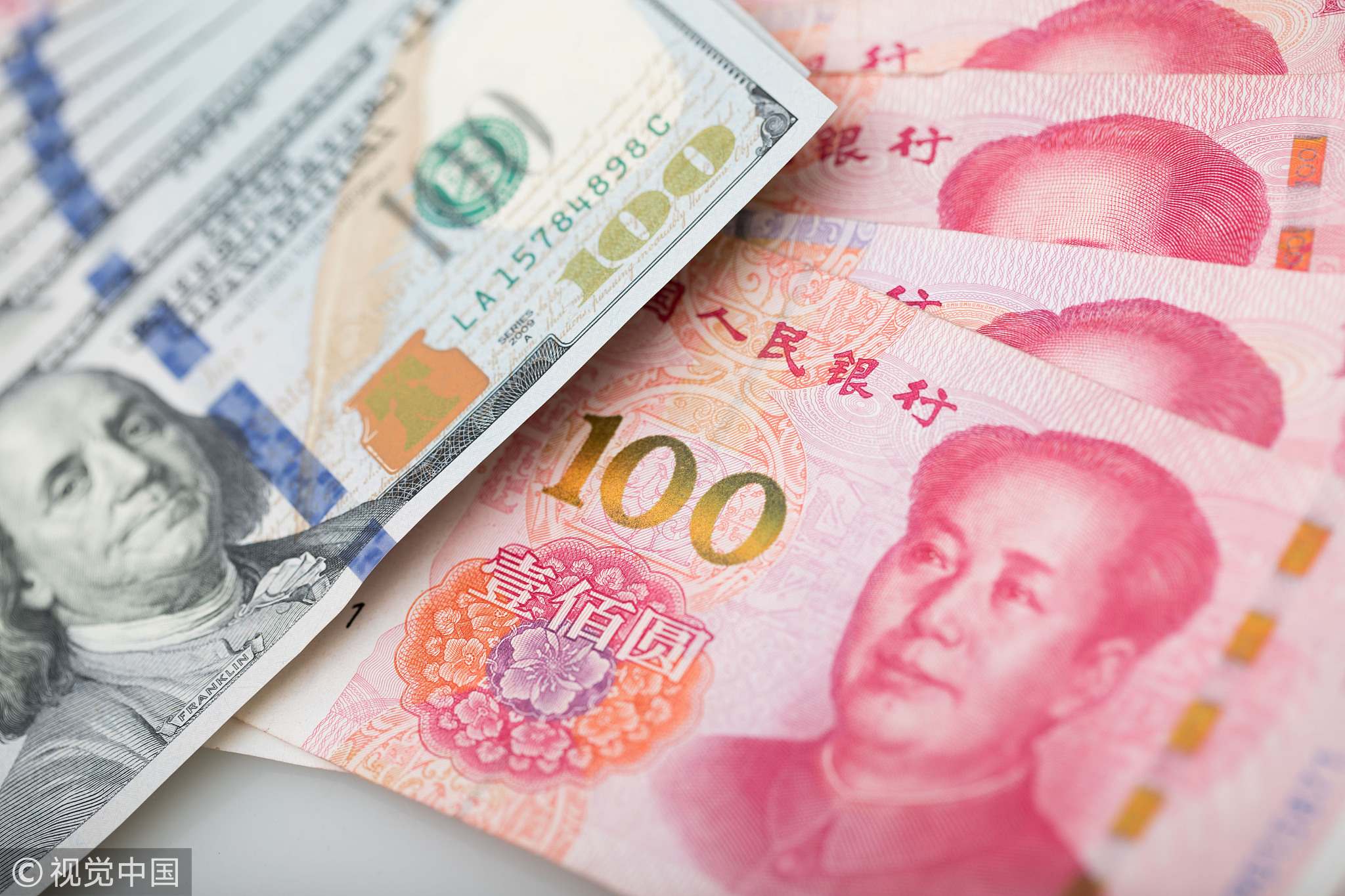
Opinions
11:03, 06-Jan-2019
Opinion: Turning the U.S.-China trade war into a strategic opportunity
Updated
10:56, 09-Jan-2019
Kong Qingjiang

Editor's note: Kong Qingjiang is the dean of the School of International Law at the China University of Political Science and Law. The article reflects the author's opinions, and not necessarily the views of CGTN.
A U.S. trade delegation headed by Deputy U.S. Trade Representative Jeffrey Gerrish will begin talks with its Chinese counterparts on Monday. This is the first in-person talks since the Chinese and U.S. presidents agreed on the sidelines of the Buenos Aires G20 summit to stop escalating tit-for-tat tariffs that have disrupted trade, hurt manufacturing, roiled international markets and slowed the global economy.
Unlike the previous talks, there's great hope that this round of talks will end the trade war. Given the importance of both the U.S. and China in the landscape of world trade, such talks, with or without a deal reached, are expected to make 2019 an epochal year for the future of the global trading system.
First, the 90-day pause, agreed on at the G20 summit, offers the two trade giants an opportunity to conclude an agreement ending the trade war. The Argentina deal has also been brewing a string of hope into the inflicted trading community. As the Beijing trade talks are nearing, such expectation is swelling.
Second, just as the U.S. delegation headed to Beijing for talks, Donald Trump hailed big progress made towards a broader trade deal that would end the tariff war. He was not only suggesting negotiations were already underway on top of the Argentina deal, but the upcoming talks will be a continuation of the negotiations.

U.S. President Donald Trump (C), U.S. Secretary of the Treasury Steven Mnuchin (2-R) and members of their delegation have dinner with Chinese President Xi Jinping (out of frame) at the end of the G20 Leaders' Summit in Buenos Aires, December 1, 2018. /VCG Photo
U.S. President Donald Trump (C), U.S. Secretary of the Treasury Steven Mnuchin (2-R) and members of their delegation have dinner with Chinese President Xi Jinping (out of frame) at the end of the G20 Leaders' Summit in Buenos Aires, December 1, 2018. /VCG Photo
Interestingly, while officials of both sides have kept low profiles since the beginning of the 90-day truce, this time the Chinese side did not downplay expectations about reaching the well-expected deal.
Against this backdrop, an observer will reasonably tend to believe that the two parties at the high-profile Beijing talks are somewhat certain about making further progress, and this further raises the expectations of a deal.
Third, since the Argentina summit, China has rolled out a number of trade incentives, including a unilateral suspension in tariffs on U.S.-made cars and purchases of U.S. soybeans despite Chinese tariffs on U.S. agriculture.
It also unveiled the draft of a foreign investment law for public consultation. In it, Beijing has proposed a ban on forced technology transfer and illegal government "interference" in foreign business operations. By doing so China has created a nice atmosphere for the trade talk and sent a strong message of goodwill.
More importantly, both the U.S. and China seem to need a trade deal. On the U.S. side, the trade war was generally regarded to have affected the 2018 midterm elections.

Bank notes of U.S. dollar and Chinese yuan, September 7, 2017. /VCG Photo
Bank notes of U.S. dollar and Chinese yuan, September 7, 2017. /VCG Photo
It can also be expected that the trade war, if it continues, would impact the 2020 presidential race. To make sure that his “wins” in Buenos Aires are not short-lived, Donald Trump is eager to see an agreement or sort of an agreement either to put the end to the trade war or to show substantial results, thus scoring points for his upcoming presidential campaign.
On the Chinese side, the country is pushing forward its economic reforms to instill strong confidence into its listless private enterprises and reduce its unemployment rate at a time of economic difficulty. In other words, it is attempting to put its own house in order.
Putting an end to the trade war would help prepare an external environment for sustainable economic development, and the trade deal could even be used by the authorities as well-needed leverage to push forward the reform.
Of course, the two parties at the negotiating table have no choice but move at a fast clip. Nevertheless, while the trade talks are inevitably to cover a structural reform in China, a 90-day window is a compressed timeline.
The trade community and the public as a whole might as well be as realistic as to lend more time for the talks. Only then would China be able to turn the trade war into a strategic opportunity.
(If you want to contribute and have specific expertise, please contact us at opinions@cgtn.com.)

SITEMAP
Copyright © 2018 CGTN. Beijing ICP prepared NO.16065310-3
Copyright © 2018 CGTN. Beijing ICP prepared NO.16065310-3